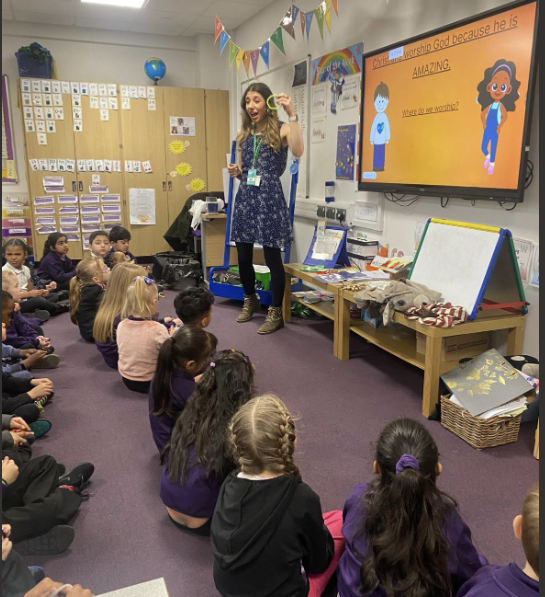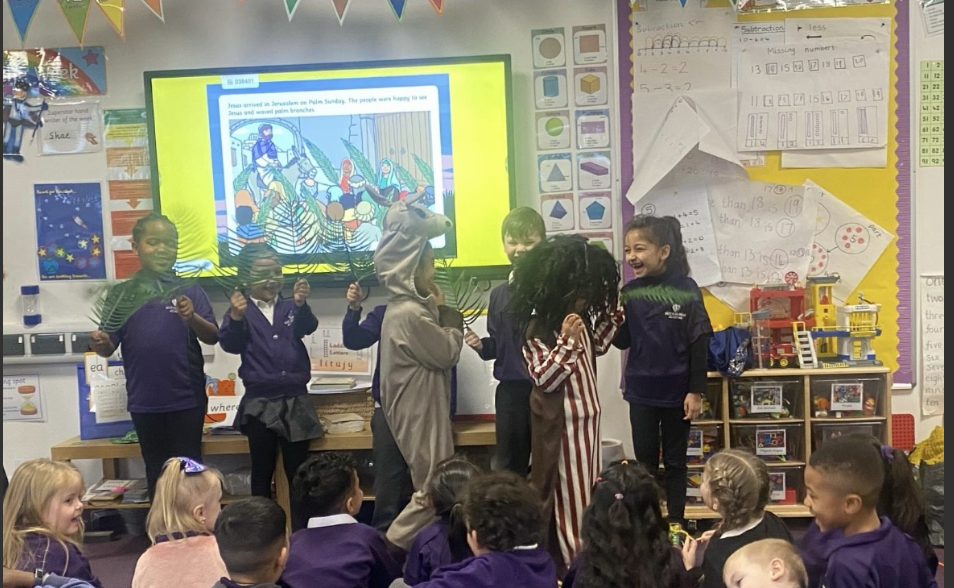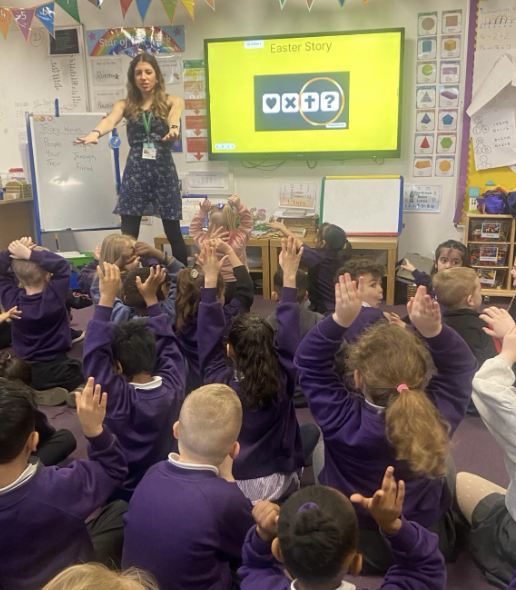Religious Education
Intent
Religious Education contributes to children’s spiritual, moral, social, cultural and intellectual development. At Nottingham Academy, our intent is that children will be encouraged to respect the religious commitment of others and embrace that people have the right to hold different religious beliefs. At Nottingham Academy, we teach RE in line with the legal requirement, by following the agreed Nottingham City Syllabus. This is further enhanced by our children having the opportunity to visit places of worship in order to enrich their knowledge of a variety of religions and cultures through first-hand experiences.
Implentation
Substantive and disciplinary knowledge
In Religious Education, substantive knowledge refers to the established ‘facts’ of religious and non-religious traditions, the different ways people express religion and non-religion in their lives, as well as knowledge of related artefacts and concepts. This is clearly mapped out in our Sticky Knowledge documents which can be found by following the links below.
Disciplinary knowledge in RE is where the children learn how to ask questions about the substantive knowledge that they have acquired. It allows children to think critically and apply the information they have learnt about different religions, helping them to understand the differences and similarities between themselves and others. Through this they develop respect, tolerance, empathy and have a much greater understanding of religions around the world, which links closely to the character strand of our curriculum. Our detailed progression documents map out these skills throughout our curriculum.
Sequence of learning:
Teachers plan a sequence of learning within RE following the structure below:
 LINK IT! Using our school progression document and progression within religions document, teachers consider links to prior learning in order for children to build on what they already know.
LINK IT! Using our school progression document and progression within religions document, teachers consider links to prior learning in order for children to build on what they already know.
![]() LEARN IT! Teachers plan and deliver engaging and meaningful learning opportunities with explicit teacher modelling, opportunities for children to talk, ask questions, compare and practice respect and tolerance as they develop knowledge of a variety of religions.
LEARN IT! Teachers plan and deliver engaging and meaningful learning opportunities with explicit teacher modelling, opportunities for children to talk, ask questions, compare and practice respect and tolerance as they develop knowledge of a variety of religions.
 CHECK IT! Teachers plan for opportunities to review and check learning each lesson to ensure adaptations can be made to the next lesson.
CHECK IT! Teachers plan for opportunities to review and check learning each lesson to ensure adaptations can be made to the next lesson.
 SHOW IT! At the end of a unit of work, children will have produced a piece of work which showcases their learning. 'Show it' pieces of work may include; producing a whole class non fiction book, a whole class debate, a recount of a trip to a place of worship or a fact file around a key religious figure or leader.
SHOW IT! At the end of a unit of work, children will have produced a piece of work which showcases their learning. 'Show it' pieces of work may include; producing a whole class non fiction book, a whole class debate, a recount of a trip to a place of worship or a fact file around a key religious figure or leader.
![]() KNOW IT! A short Sticky Knowledge quiz allows the children to demonstrate what they know and remember from their unit of work. These assessments are used to inform teacher judgements.
KNOW IT! A short Sticky Knowledge quiz allows the children to demonstrate what they know and remember from their unit of work. These assessments are used to inform teacher judgements.
Curriculum enhancements and visit:
At Nottingham Academy, we value the importance of giving our children immersive and enriching experiences which make learning real and relevant. Within RE, we plan for children to visit various places of worship in order to put into practice the importance of respect and tolerance of differences. In addition to this, our children benefit from visits external speakers from religious groups.
Year One recently enjoyed a visit from Kate Fear, a speaker from Trinity Church. This brought their learning to life around Christian festivals and celebrations:



Impact
- Teacher assessments and Sticky knowledge quizzes demonstrate that children are make good progress in RE.
- Monitoring of child's voice in RE demonstrates enthusiasm for the subject as children can talk about their learning, especially when recalling RE enrichment opportunties, including trips to places of worship.
- Our children demonstrate an understanding of a range of RE vocabulary which can be applied confidently in their oral and written work. Vocabularly is progressive across school.
- As theologists, our children can use their skills to pose questions, listen to the views of others, make comparisons, practice respect and tolerance of others.
- Our children enjoy a range of RE enrichments opportunities which allow them to become immersed in the subject and encourages a genuine interest and respect for all religions.
